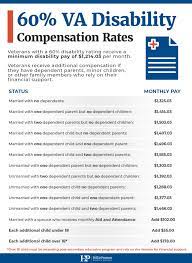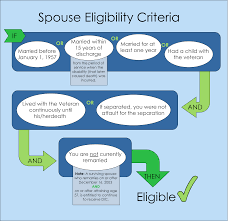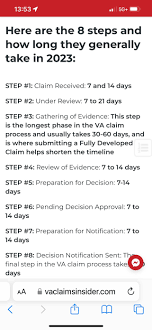Hypothyroidism is a common condition among veterans, and it can have a significant impact on their lives. If you are a veteran who has been diagnosed with hypothyroidism, you may be eligible for disability benefits from the Department of Veterans Affairs (VA).
Hypothyroidism is a condition in which the thyroid gland does not produce enough hormones to regulate the body’s metabolism. This can lead to symptoms such as fatigue, weight gain, depression, and cognitive impairment. The condition can be caused by a variety of factors, including genetics, autoimmune disorders, and exposure to radiation or other toxins.
If you are a veteran who has been diagnosed with hypothyroidism and you believe that your condition is related to your military service, you may be eligible for disability benefits from the VA. To qualify for benefits, you will need to provide evidence that your condition is connected to your military service. This can be done by providing medical records that show when your hypothyroidism was first diagnosed and any evidence that links it to your military service.
If you are approved for disability benefits for hypothyroidism, the amount of compensation you receive will depend on the severity of your condition. The VA rates disabilities on a scale from 0% to 100%, with higher ratings indicating more severe conditions. A rating of 60% indicates that your hypothyroidism is considered moderately severe and significantly impacts your ability to work.
It’s important to note that applying for disability benefits from the VA can be a complicated process. It’s recommended that you seek assistance from an experienced veterans’ advocate or attorney who can help guide you through the process and ensure that all necessary documentation is provided.
In conclusion, if you are a veteran who has been diagnosed with hypothyroidism and believes it is related to your military service, it’s worth exploring whether you may be eligible for disability benefits from the VA. These benefits can provide financial assistance and support for veterans who are struggling with the impacts of this condition.
6 Essential Tips for Managing Hypothyroidism and Maximizing VA Disability Benefits
- Make sure to get regular checkups with your doctor to monitor your thyroid hormone levels.
- Take your prescribed medication as instructed and follow up with your doctor if you have any questions or concerns about the dosage or side effects.
- Eat a balanced diet that includes plenty of fresh fruits and vegetables, lean proteins, and healthy fats to support optimal thyroid health.
- Exercise regularly to help maintain a healthy weight and reduce stress levels, which can help keep your hormones in balance.
- Get plenty of restful sleep each night so that your body has time to repair itself and stay healthy overall.
- Talk to a mental health professional if you are feeling overwhelmed or depressed due to living with hypothyroidism; they can provide valuable support and resources for managing the condition better on a daily basis.
Make sure to get regular checkups with your doctor to monitor your thyroid hormone levels.
If you are a veteran with hypothyroidism and have been rated at 60% disability by the VA, it is important to stay on top of your health by getting regular checkups with your doctor. Hypothyroidism is a condition that requires ongoing monitoring, and regular checkups can help ensure that your thyroid hormone levels are within the normal range.
During these checkups, your doctor will likely perform blood tests to measure your thyroid hormone levels and adjust your medication as needed. They may also monitor other aspects of your health, such as cholesterol levels and blood pressure, which can be impacted by hypothyroidism.
Regular checkups with your doctor can also help identify any potential complications associated with hypothyroidism, such as heart disease or osteoporosis. Early detection of these conditions can lead to more effective treatment and better outcomes.
In addition to regular checkups with your doctor, it’s important to maintain a healthy lifestyle. This includes eating a balanced diet, getting regular exercise, and avoiding smoking and excessive alcohol consumption. These lifestyle factors can impact the severity of hypothyroidism symptoms and overall health outcomes.
In conclusion, if you have been rated at 60% disability for hypothyroidism by the VA, make sure to get regular checkups with your doctor to monitor your thyroid hormone levels. This can help ensure that you receive appropriate treatment for this condition and maintain good overall health.
Take your prescribed medication as instructed and follow up with your doctor if you have any questions or concerns about the dosage or side effects.
If you are a veteran who has been diagnosed with hypothyroidism and are receiving disability benefits from the Department of Veterans Affairs (VA), it’s important to take your prescribed medication as instructed. Hypothyroidism is a condition that requires ongoing treatment, and failure to properly manage your medication can lead to complications and worsen your symptoms.
Your doctor will prescribe medication that is tailored to your specific needs, and it’s important to follow their instructions for dosage and frequency. It’s also important to take your medication at the same time each day, as this can help ensure that it is effective in regulating your thyroid hormone levels.
If you have any questions or concerns about your medication, be sure to follow up with your doctor. They can provide guidance on how to manage any side effects you may be experiencing or adjust your dosage if necessary. It’s also important to keep track of any changes in symptoms or side effects and report them to your doctor during follow-up appointments.
By taking your prescribed medication as instructed and following up with your doctor if you have any questions or concerns, you can help ensure that you are managing your hypothyroidism effectively. This can improve your quality of life and help you maintain the level of health needed for daily activities.
Eat a balanced diet that includes plenty of fresh fruits and vegetables, lean proteins, and healthy fats to support optimal thyroid health.
If you are a veteran who has been diagnosed with hypothyroidism and is receiving disability benefits from the VA, it’s important to take care of your overall health to manage your condition. One simple tip to support optimal thyroid health is to eat a balanced diet that includes plenty of fresh fruits and vegetables, lean proteins, and healthy fats.
The thyroid gland requires certain nutrients, such as iodine and selenium, to function properly. Eating a diet that is rich in these nutrients can help support thyroid health and reduce symptoms of hypothyroidism. Additionally, eating a balanced diet can help manage weight gain, which is a common symptom of hypothyroidism.
Fresh fruits and vegetables are excellent sources of vitamins, minerals, and antioxidants that can support overall health. Lean proteins, such as chicken or fish, provide essential amino acids that support muscle growth and repair. Healthy fats, such as those found in nuts and seeds or olive oil, provide energy and support brain function.
Incorporating these foods into your diet can be simple. For example, try adding spinach to your morning omelet or snacking on carrots and hummus in the afternoon. Swap out processed snacks for nuts or seeds for a healthy fat boost. Small changes like these can make a big difference in supporting your thyroid health.
In conclusion, if you have been diagnosed with hypothyroidism and are receiving disability benefits from the VA, consider incorporating more fresh fruits and vegetables, lean proteins, and healthy fats into your diet to support optimal thyroid health. Consult with your doctor or nutritionist for personalized advice on how best to manage your condition through nutrition.
Exercise regularly to help maintain a healthy weight and reduce stress levels, which can help keep your hormones in balance.
If you are a veteran who has been diagnosed with hypothyroidism and is receiving disability benefits from the VA, it’s important to take steps to manage your condition and maintain your overall health. One of the most effective ways to do this is through regular exercise.
Exercise can help you maintain a healthy weight, which is important for managing hypothyroidism. When your thyroid gland isn’t producing enough hormones, it can slow down your metabolism and make it more difficult to lose weight. Regular exercise can help you burn calories and maintain a healthy weight, which can improve your overall health and reduce the impact of hypothyroidism on your body.
In addition to helping with weight management, exercise can also help reduce stress levels. Stress can have a negative impact on hormone levels in the body, including thyroid hormones. By reducing stress through regular exercise, you may be able to help keep your hormones in balance and manage the symptoms of hypothyroidism more effectively.
When starting an exercise program, it’s important to start slowly and gradually increase intensity over time. Consult with your healthcare provider before starting any new exercise program, especially if you have any underlying health conditions or concerns about how exercise may impact your hypothyroidism.
In conclusion, regular exercise is an important part of managing hypothyroidism for veterans receiving disability benefits from the VA. By maintaining a healthy weight and reducing stress levels through exercise, veterans may be able to improve their overall health and manage their condition more effectively.
Get plenty of restful sleep each night so that your body has time to repair itself and stay healthy overall.
Getting enough restful sleep each night is crucial for maintaining good health, especially if you are a veteran living with hypothyroidism. When your body is at rest, it has time to repair itself and recharge for the next day. This is particularly important for those with hypothyroidism, as the condition can cause fatigue and other symptoms that make it difficult to get through the day.
If you are living with hypothyroidism and receiving disability benefits from the VA, it’s important to prioritize getting enough sleep each night. Aim for at least 7-8 hours of restful sleep per night to give your body the time it needs to heal and recover.
There are many strategies you can use to improve your sleep quality, including establishing a regular bedtime routine, avoiding caffeine and alcohol before bed, and creating a comfortable sleeping environment. You may also want to talk to your healthcare provider about any medications or supplements that could help improve your sleep quality.
By prioritizing restful sleep each night, you can help manage symptoms of hypothyroidism and improve your overall health and wellbeing. Remember, taking care of yourself is an important part of managing any health condition, so don’t hesitate to make sleep a top priority in your daily routine.
Talk to a mental health professional if you are feeling overwhelmed or depressed due to living with hypothyroidism; they can provide valuable support and resources for managing the condition better on a daily basis.
Living with hypothyroidism can be challenging, and it’s not uncommon for veterans to feel overwhelmed or depressed as a result. If you are struggling with the emotional impacts of hypothyroidism, it’s important to seek help from a mental health professional.
A mental health professional can provide valuable support and resources for managing the condition better on a daily basis. They can help you develop coping strategies for dealing with the symptoms of hypothyroidism, such as fatigue and cognitive impairment. They can also provide guidance on how to maintain a healthy lifestyle, including diet and exercise recommendations.
In addition to providing practical support, a mental health professional can also offer emotional support during difficult times. They can help you work through feelings of anxiety or depression that may arise as a result of living with hypothyroidism.
If you are a veteran who is living with hypothyroidism and feeling overwhelmed or depressed, don’t hesitate to reach out for help. Talk to your doctor about getting a referral to a mental health professional who has experience working with veterans. With the right support, it is possible to manage the condition and live a fulfilling life.



